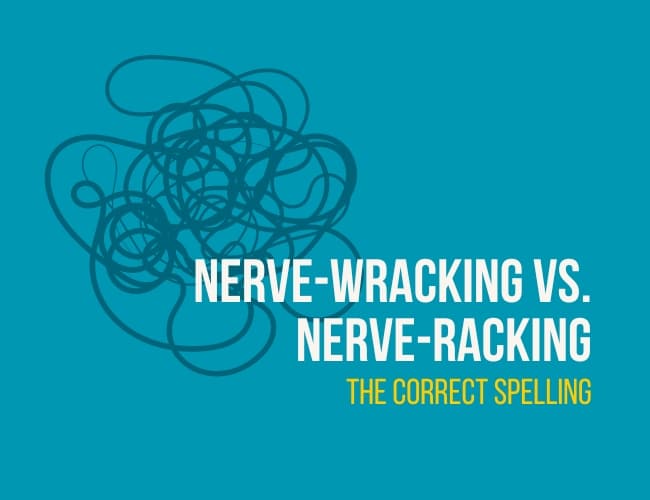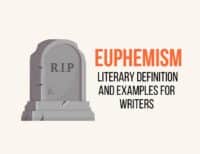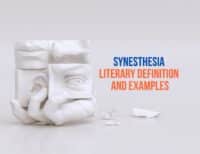You are writing your story, and the words are flowing. You're in the groove. Wait. Or is that “your”? Now you've stopped writing and started pondering. It seems you do this a lot. Or alot. Or allot. AGH! English spelling is so nerve-racking. Or is that nerve-wracking? Nerve racking? Nerve wracking?
Let's take a look.

Definition and overview of nerve-racking
Life is full of stress, and spelling is a source of stress for writers. Remembering the rules (e.g., i before e) and exceptions (except after c and …) can be trying on your nerves, and that is the very definition of nerve-racking, at least as given by Merriam-Webster.
So, why is the very term for “trying on the nerves” so trying on the nerves?
The problem arises because of “rack” and “wrack,” which sound alike and can have similar meanings. English silent letters are always problematic because they give us so many homophones.
According to Webster, a rack is a framework, an instrument of torture, and a source of pain and anguish, among other things. This leads us to the verb, which means to cause torture, pain, anguish or ruin. So far, so good.
Unfortunately, Webster also tells us that “wrack,” in addition to referring to kelp, can be a synonym for “wreck,” ruin, destruction, a wrecked ship. The verb means to ruin or wreck. Fortunately, “wreck” doesn't seem to cause trouble here.
So, do you rack (torture) or wrack (destroy) your nerves? And do you hyphenate or not?
Spelling and Variants
Correct spelling of nerve-racking
Let's start with easy question first. While many compound descriptors remain separate words except when they come before the word they modify, others have become so closely connected they always have a hyphen. Nerve-(w)racking is one of the latter. Always hyphenate the word.
But what about the (w)rack part?
If you are writing for an American audience, Merriam-Webster prefers nerve-racking but allows nerve-wracking. Google Books N-gram Viewer (a tool that assesses the frequency of words in books) shows a strong preference for nerve-racking. AP Style, however, insists on nerve-wracking.
Confused yet?
If you want to be extremely nuanced, you could make a personal distinction between something that tortures your nerves (nerve-racking) and something that destroys your nerves (nerve-wracking). I don't recommend this, though; most people will believe you don't know how to spell.
Preferred spelling variations
The bottom line is that you can use either spelling with the hyphen, but most people prefer the version without the silent letter (w).
Unless your writing assignment demands AP Style, I recommend nerve-racking as being, well, less nerve-racking.
Most importantly, be consistent. And include the hyphen.
Examples of Nerve-Racking Situations
Here are some examples of nerve-racking in sentences and phrases.
Driving in a foreign country can be a nerve-racking experience.
English spelling can be nerve-racking.
Explorers often undergo nerve-racking situations, such as white-out conditions during a polar expedition.
You might have a nerve-racking day at work.
First dates can be nerve-racking.
Guys find gift-giving, especially for Valentine's Day, nerve-racking.
Going to the dentist is nerve-racking for many people.
Racking your brain over rack and wrack can be nerve-racking and leave you so mentally racked with pain that you simply choose a synonym.
As usual, the English language finds new ways to bewilder us with spelling and variants. Whatever your format or publication requires, I hope you'll find this phrase a little less nerve-racking today!
What other words do you have trouble spelling? Share in the comments.
PRACTICE
Now you try it.
Set aside fifteen minutes to rack your brain for situations you find nerve-racking. Describe the situation and tell us why it is nerve-racking.
If you make a distinction between torturing your nerves and completely destroying them, describe one situation that would be nerve-racking and another that would be nerve-wracking. If you don't make that distinction, breathe a sigh of relief that you have escaped a nerve-(w)racking experience.
Share your practice in the Pro Practice Workshop and leave feedback for a few other writers. Not a member? Join us!








0 Comments